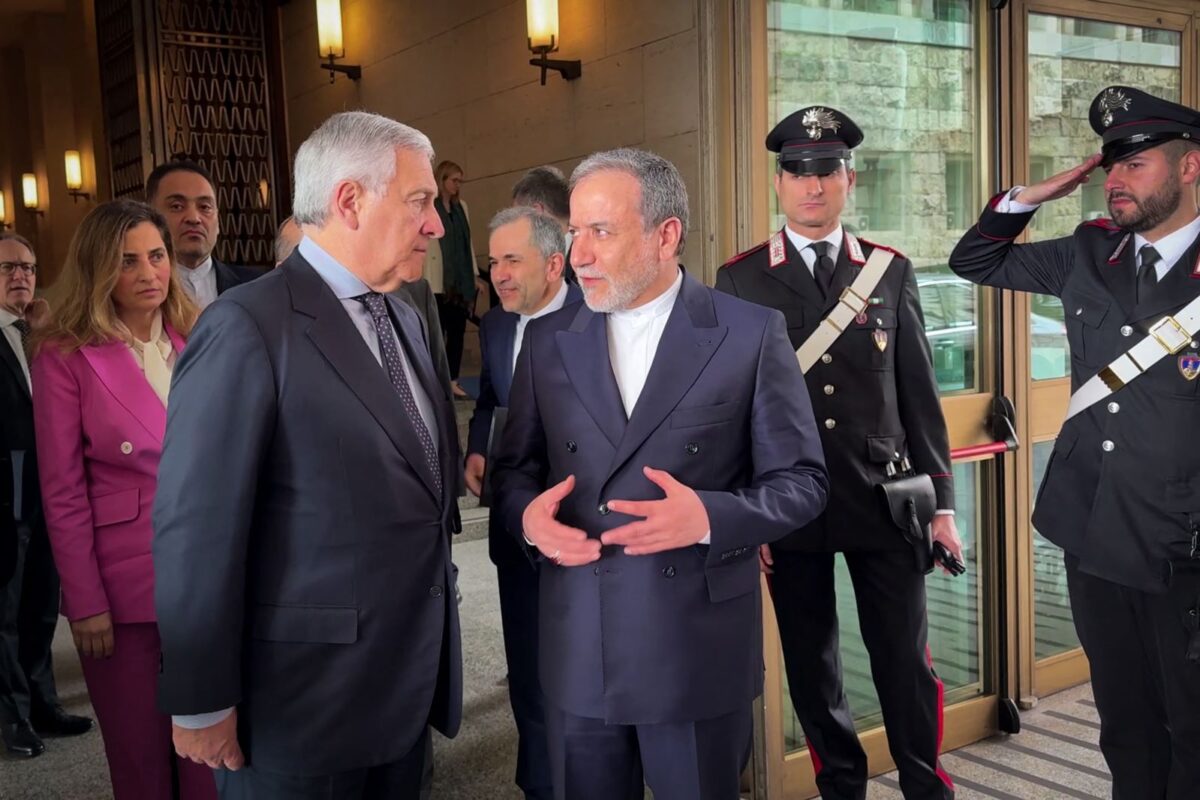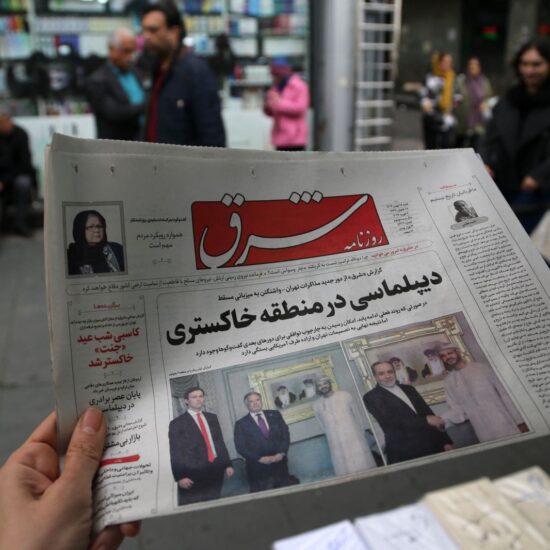
Lebanon finds itself caught in the crossfire of regional power struggles and international negotiations, struggling to uphold its sovereignty while navigating the competing pressures of Iran, the US, and internal divisions
In quiet meeting rooms behind closed doors, American and Iranian diplomats are preparing to circle back to the same question that has defined their relations for decades: can they stop the clock on Iran’s nuclear program without setting it off?
This Saturday, high-level negotiations between the US and Iran will resume in Oman, after a delay in technical consultations that were originally slated for Wednesday. According to Iran’s Foreign Ministry, the shift came at the suggestion of Omani mediators and was mutually agreed upon by both sides.
The talks mark the third round of indirect dialogue aimed at sketching the outline of a potential nuclear agreement. Following earlier meetings in Rome, Iranian Foreign Minister Abbas Araqchi said the parties had made “very good progress,” and that this round would focus on reviewing technical proposals drafted by expert teams.
While diplomacy quietly advances, tensions continue to build on other fronts. Satellite imagery published this week by the Institute for Science and International Security revealed that Iran is reinforcing security around two tunnel complexes near its primary nuclear site. The timing of the expansion, just days ahead of renewed talks, comes as the U.S. and Israel have both floated the possibility of military action if negotiations stall.
President Donald Trump, who scrapped the 2015 nuclear deal during his first term, has called for a new agreement that would sharply limit Iran’s enrichment capabilities. Iran, for its part, denies seeking nuclear weapons and says it is open to limited restrictions in return for sanctions relief.
Still, the stakes are high and the situation remains unpredictable—experts say the outcome will inevitably ripple across the region, with Lebanon poised to feel the impact, for better or worse, depending on whether the talks end in breakthrough or breakdown.
Why is this important?
The US-Iran nuclear negotiations are being closely watched across the region, with Lebanon in particular feeling the effects.Co-Founder and Executive Director of the Arab NGO Network for Development (ANND) Ziad Abdel Samad told NOW that Lebanon is a critical leverage point for Iran in its negotiations with the US “Lebanon is one of the tools Iran uses to strengthen its position,” he explains, noting that the country often serves as a pressure point in Iran’s broader strategy. The outcome of the talks will have significant consequences for Lebanon, depending on the direction taken regarding Iran’s nuclear program.
Abdel Samad highlights the legacy of the Trump administration’s decision to withdraw from the 2015 nuclear deal and reimpose severe sanctions on Iran, which has set the tone for the ongoing talks. He argues that the US approach aims to limit Iran’s nuclear activities, curb its missile capabilities, and end its influence operations in the region—particularly in countries like Iraq, Lebanon, and Yemen, where Iran has supported various armed groups. However, Iran insists that the negotiations should focus exclusively on its nuclear program, rejecting any discussions about its missile program or regional influence as an infringement on its sovereignty. This divergence in perspectives has complicated the talks from the start.
Abdel Samad warns that the current negotiations are not designed to ease tensions but to serve as a diplomatic tool for containing Iran. “The Americans aren’t coming in easy,” he says. The US stance is clear: no nuclear weapons, no long-range missiles, and no Iranian influence beyond its borders. Iran, on the other hand, is working to offset this pressure, improving ties with countries like Saudi Arabia in an effort to secure international support.
Hezbollah’s role in Lebanon adds another layer of complexity. While Lebanon has committed to implementing international resolutions like UN Security Council Resolution 1701, the Lebanese government faces challenges coordinating with Hezbollah to avoid internal conflict. Abdel Samad warns that Hezbollah’s hardline stance could prompt other Lebanese factions to adopt similarly rigid positions, further complicating Lebanon’s delicate political landscape. Even if the U.S. were to ease sanctions on Iran, he believes it’s unlikely that such a move would lead to open funding for Hezbollah, especially as Lebanon faces increased international scrutiny.
Cautious optimism
Meanwhile, Michael Young, Senior Editor at the Carnegie Middle East Center, shares a more cautious view of the talks. He describes the negotiations as still in the “preliminary stage,” with no clear path to success yet. “There’s optimism, but it’s not reflective of where we are,” he told NOW, stressing that the talks have not yet addressed substantive issues. The scope of the negotiations, particularly whether the US focuses solely on Iran’s nuclear program or expands the talks to include Iran’s missile program and regional proxies, will be crucial. Young is skeptical that Iran would agree to such terms, noting that it would involve significant concessions that Iran is unlikely to make.
Israel’s role also looms large in the negotiations. Young cites Israel’s hardline stance and its desire for an outcome similar to Libya’s disarmament as an example of Israel’s position. However, he argues that this is unrealistic given Iran’s insistence on maintaining its uranium enrichment capabilities.If Hezbollah is included in the negotiations, Young believes it could mark a positive shift for Lebanon. However, he questions whether Iran would agree to broaden the scope of the talks. While the scope remains unclear, there is still a possibility that Iran might be willing to discuss Hezbollah if it receives concessions from the US.
Young also notes that a deal with Iran—particularly one that leads to Hezbollah’s disarmament—could unlock foreign aid that supports Lebanon’s post-war economic recovery, as it would signal the end of a single party imposing its agenda on the country. However, he warns that if the negotiations fail, tensions with Israel could escalate. Given the current positions, war remains a real possibility. The American demands—to halt uranium enrichment and expand the talks to include Iran’s missile program—may not be accepted by Tehran. If Iran rejects these terms and negotiations stall, renewed violence becomes the more likely outcome.
“Under the circumstances today, objectively today, war remains a likely option. Because the American demands are unlikely to be accepted by Iran. So, if Iran rejects an extension of the negotiation to the missiles and insists on continuing on enriching uranium, we will have major blockages in the negotiations, so more likely there will be more violence,” he told NOW.
Lebanon’s Foreign Ministry summoned Iran’s ambassador, Mojtaba Amani, on Thursday to protest his recent remarks, which were seen as interference in Lebanon’s internal affairs. The ministry emphasized the importance of respecting diplomatic norms and refraining from commenting on sovereign matters, following a social media post by Amani that appeared to criticize Lebanon for allegedly yielding to US pressure to disarm Hezbollah. While he didn’t name Lebanon or Hezbollah directly, the message’s timing and content clearly referenced ongoing disarmament discussions, warning that such moves leave nations vulnerable to foreign aggression.
“This is the bare minimum,” Abdel Samad said. “This highlights Lebanon’s commitment to its sovereignty.”
As regional and international powers continue to shape the outcome of nuclear negotiations with Iran, Lebanon finds itself walking a tightrope—balancing diplomatic pressures, internal divisions, and the influence of Hezbollah. The summoning of the Iranian ambassador signals a rare assertion of sovereignty by the Lebanese state, but experts remain wary. With negotiations still in their early stages and major sticking points unresolved, the road ahead is uncertain. What’s clear, however, is that Lebanon’s stability is increasingly tied to decisions made far beyond its borders—decisions that could either ease its political deadlock or deepen its vulnerabilities.








